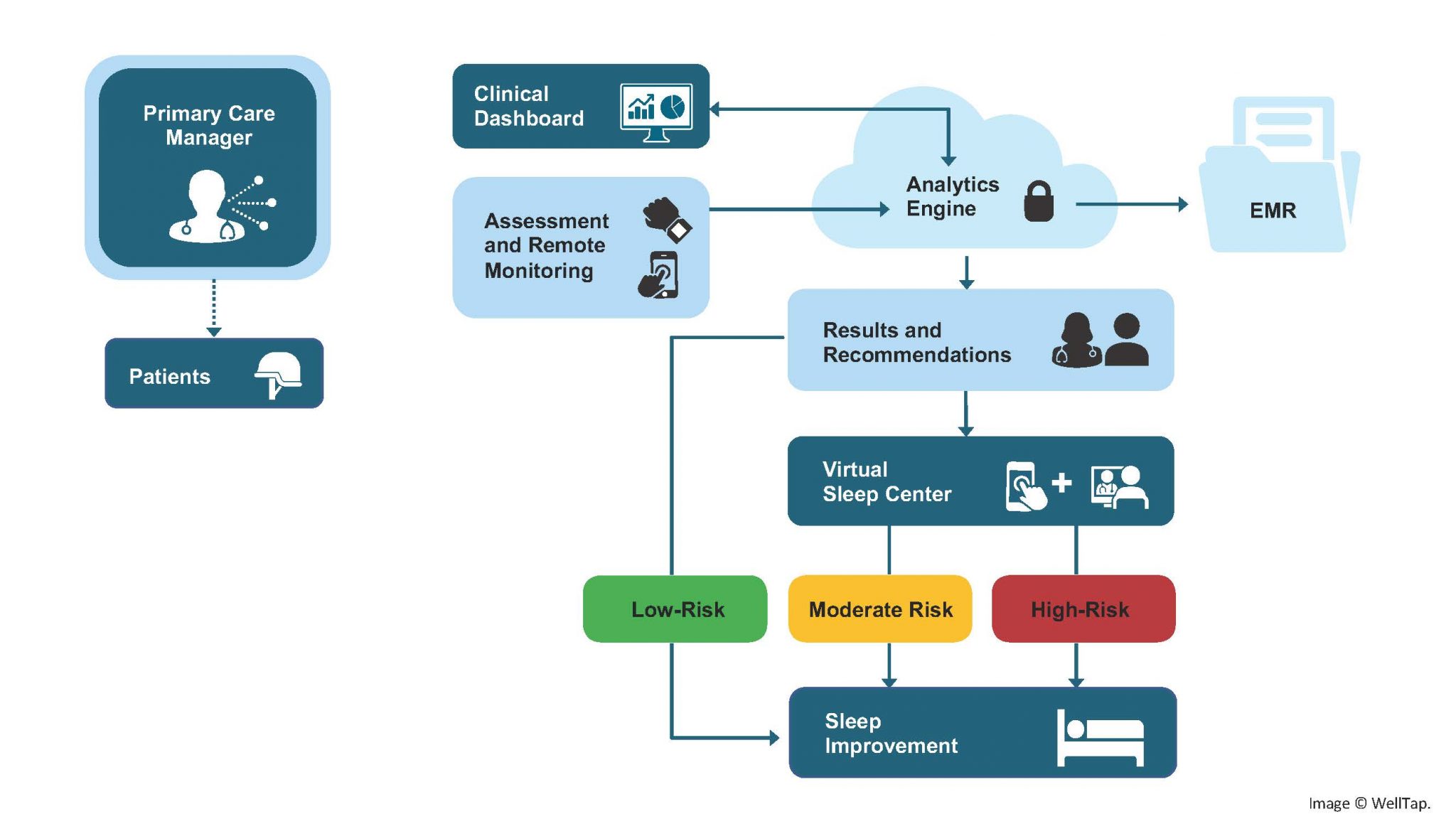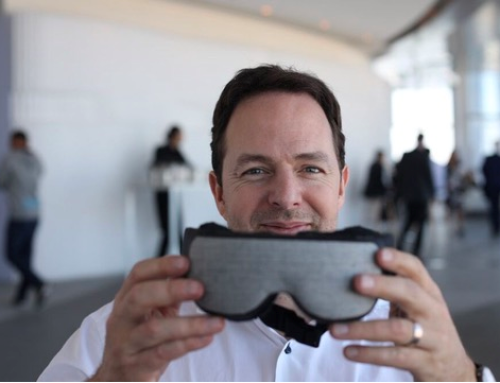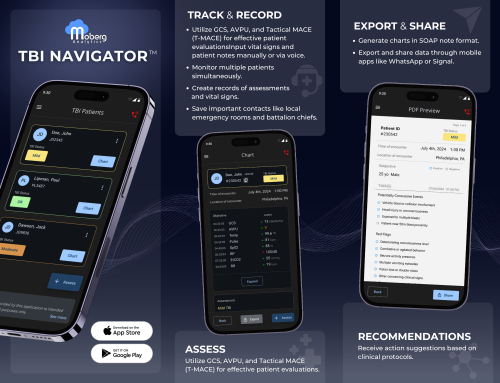With the support from the USAMRDC Military Operation Medicine Research Program (MOMRP), the University of Maryland Sleep Disorders and Research Center, part of the University of Maryland School of Medicine, is tackling the serious issue of sleep disorders in the military through the use of remote monitoring and telehealth strategy, implementation, and evaluation. Their work is done in collaboration with the University of Maryland, Baltimore, Walter Reed National Military Medical Center (WRNMMC), Walter Reed Army Institute of Research, and Fort Belvoir Community Hospital, (FBCH) as well as software partner, Somnum Technologies, LLC.
Soldiers do not get enough sleep, with potentially disastrous consequences. In part due to the unrelenting tempo of military work, non-traditional work schedules, and poor sleeping environments, insufficient and disturbed sleep are endemic in modern military life. Further, clinical sleep disorders such as insomnia and obstructive sleep apnea are common and costly, incurring significant adverse impact on Warfighter health and operational readiness. Importantly, PTSD, TBI, and other adverse Warfighter consequences are negatively impacted by insufficient and disturbed sleep.
Unfortunately, there is a dearth of experienced and trained sleep clinicians within the military, and demand for sleep medicine services greatly exceeds system capacity. We aim to utilize wearable-driven diagnostics and telehealth communications to increase access to care, improve military-relevant outcomes, and reduce medical costs.
Our project employs a state of the art, end to end platform (WellTap®). The purposes of this platform are four-fold:
1) Help primary care managers (PCMs), non-sleep specialists, to assess sleep complaints
2) Empower patients and PCMs to make evidence-based sleep treatment decisions
3) Deliver evidence-based behavioral sleep treatments via mobile devices
4) Connect patients with sleep specialists in virtual or physical sleep centers.
As part of this study, we integrated a commercial off the shelf (COTS) wearable (Fitbit) to enable passive data capture. We are now implementing this wearable-driven sleep telehealth platform in two busy MTFs – WRNMMC and FBCH.
In phase one, we engaged a broad range of military stakeholders including active-duty service members (ADSMs) with sleep disorders, PCMs, and administrative stakeholders to explore perceptions regarding current sleep management practices in the military. Results of focus groups (n=26) and 1:1 interviews (n=24) indicated that participants perceived that current military sleep management practices are neither satisfactory nor maximally effective. Participants identified barriers and facilitators to optimal sleep care and offered suggestions for implementation of our approach to sleep telehealth. This phase resulted in two peer-reviewed manuscripts published in Military Medicine and many abstracts at national conferences.
We are currently in phase two, the clinical implementation phase. To date, we have enrolled over 180 participants from WRNMMC and FBCH. Following clinical implementation, we will conclude our implementation evaluation by conducting another round of focus groups and 1:1 interviews with patients, PCMs, and administrative stakeholders.
Of course, we are also making moves downrange and planning for next steps to advance this important program to improve soldier health and readiness, including randomized controlled trials of novel approaches to sleep disorders. By combining state of the art sleep science and the knowledge how to implement solutions in real-world military medical settings, our overarching goal is to improve Warfighter health, readiness, and resilience.
This project was funded through the MTEC’s Request for Project Proposals for Tele-Sleep Decision Assist Tools (Solicitation #19-02-TELE-SLEEP).
About the University of Maryland Sleep Disorders and Research Center:
The University of Maryland Sleep Disorders and Research Center is part of the University of Maryland School of Medicine, the nation’s oldest public medical school and the first medical school in the U.S. to establish a residency training program.
Our multidisciplinary sleep research team is composed of experts in real-world, big data analytics, with internationally renowned expertise in health economics of sleep disorders and their treatments. Together, we seek to improve outcomes for individuals and systems through remote monitoring and telehealth strategy, implementation, and evaluation.
Our program of sleep research is substantially funded by federal, foundation, and private industry partners. We are proud and grateful that 100% of first-time project funders have become repeat sponsors, funding one or more efforts after the initial study is complete.
This is a team project including four collaborating institutions: UMB (PI: Emerson M. Wickwire, PhD), WRNMMC (PI: COL Jacob I. Collen, MD), WRAIR (PI: LTC Vincent F. Capaldi, MD, MSc), and FBCH (PI: Samson Assefa, MD), as well as software partner, Somnum Technologies, LLC (PI: Andrew Dean).
References
Abdelwadoud M, Collen J, Edwards H, Mullins CD, Jobe S, Labra C, Capaldi V, Assefa S, Williams S, Drake C, Albrecht J, Manber R, Mahoney A, Bevan J, Grandner M, & Wickwire EM. Engaging stakeholders to optimize sleep disorders management in the United States military: A qualitative analysis. . Mil Med. 2021 Aug 23;usab341. doi: 10.1093/milmed/usab341. Online ahead of print.
Wickwire EM, Abdelwadoud M, Collen J, Edwards H, Labra C, Capaldi V, Assefa S, Williams S, Drake C, Albrecht J, Manber R, Mahoney A, Bevan J, Grandner M, & Mullins CD. Active-duty service members, primary managers, and administrators’ perspectives on a novel tele-sleep management platform in the US Military Healthcare System. Military Medicine. 2022 Jan 28;usac006. doi: 10.1093/milmed/usac006. Online ahead of print.






